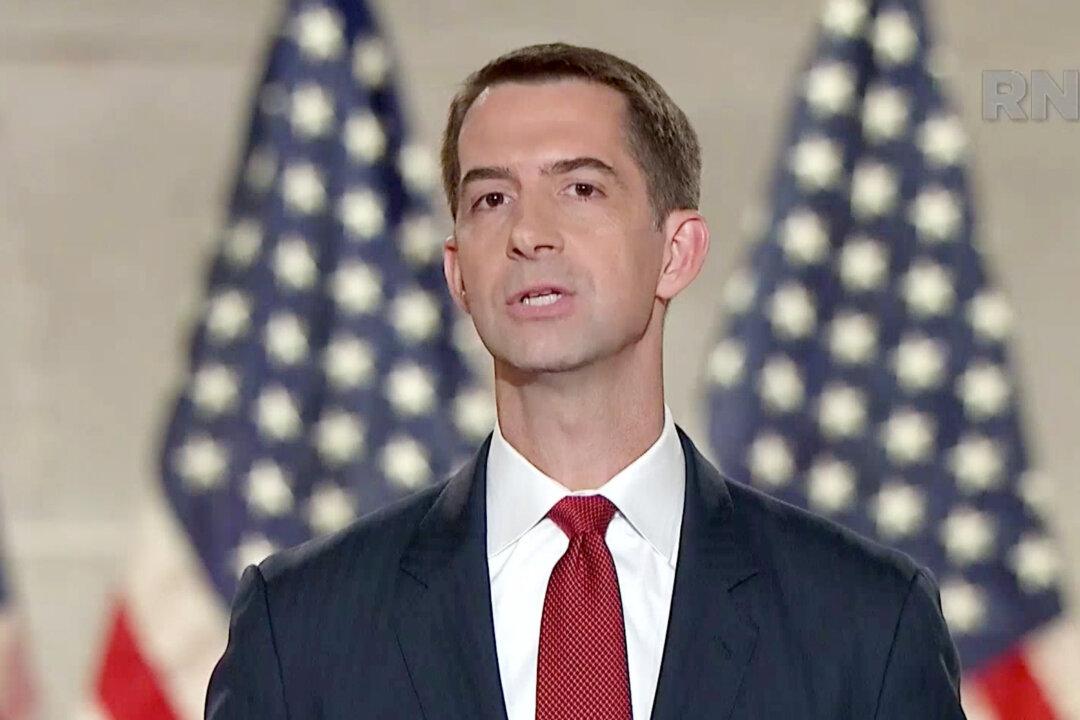Sen. Tom Cotton (R-Ark.) announced late Jan. 3 that he would not join efforts to challenge the Electoral College vote during the joint session on Jan. 6.
The Arkansas senator said that although he shares concerns about election irregularities in the 2020 general election, he believes that Congress would be exceeding its own power if it tried to overturn the Electoral College results and set “unwise” precedents.




